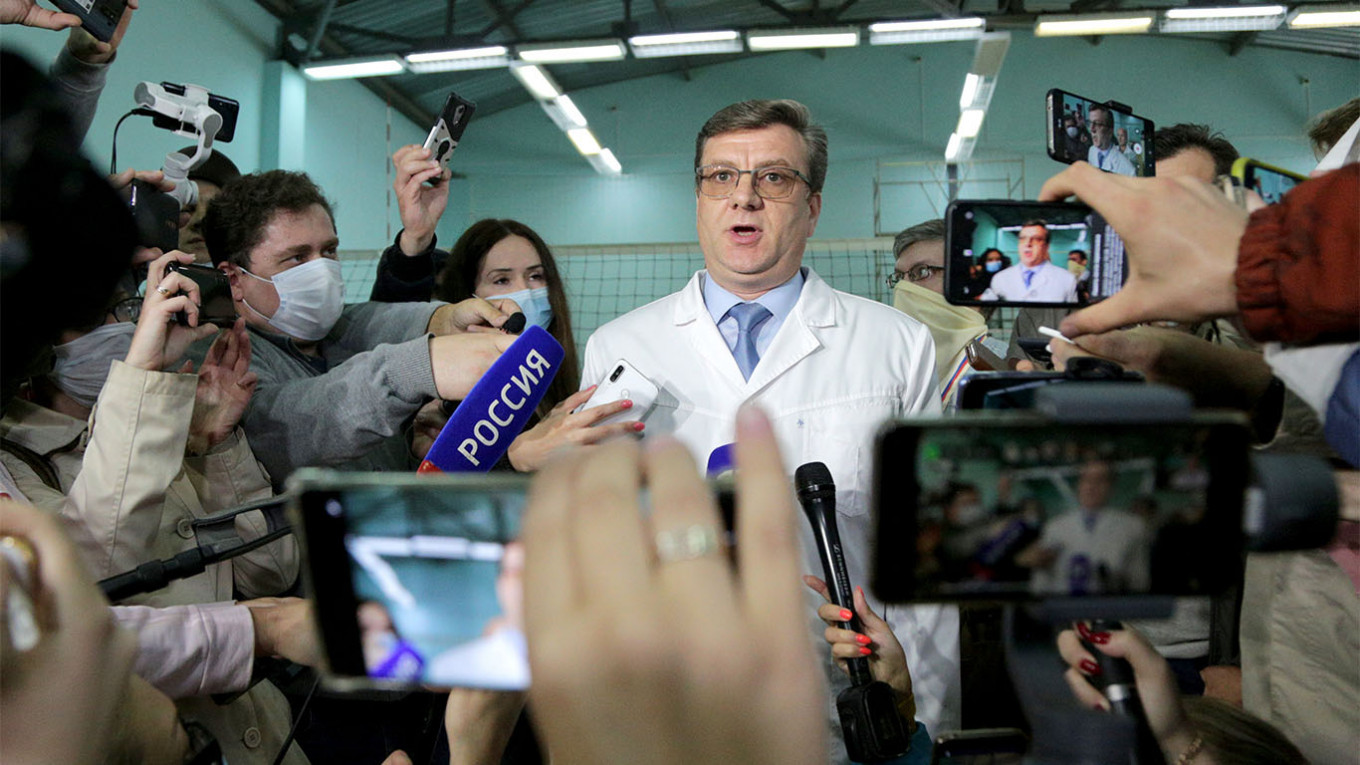
The head doctor of the Siberian hospital which first treated leading Kremlin critic Alexei Navalny — and repeatedly denied that he had been poisoned — has been appointed the region’s new health minister.
Omsk region governor Alexander Burkov said in a statement Saturday morning he had named Alexander Murakhovsky, 49, to head up the region’s health ministry.
The former health minister Irina Soldatova was dismissed at the end of October after two ambulances took coronavirus patients to the ministry’s building to demonstrate a lack of beds in the region’s hospitals, the Meduza news website reported, as the second wave of the pandemic sweeps across Russia’s regions.
Murakhovsky was the chief doctor at Omsk Emergency Hospital No. 1, which was thrust into the global spotlight over the summer when Navalny fell ill on a flight and his plane was forced to make an emergency landing in Omsk.
In a string of press conferences from the hospital, he repeatedly denied that any traces of poison had been found in Navalny’s system, suggesting Navalny could have suffered from a steep drop in blood sugar levels on the flight. Murakhovsky also initially refused to allow him to be transported to Germany, saying he was too unstable for the flight.
Navalny’s family and aides pushed for him to be transferred to a leading German toxicology center, citing a lack of vital equipment at the Omsk hospital and a worry that doctors there faced pressure from the authorities.
Navalny was eventually permitted to be transferred to Berlin’s Charite hospital via medical evacuation. There, German doctors confirmed the suspected poisoning which Murakhovsky said had not been found in Navalny’s body.
Independent laboratories in Germany, France and Sweden also subsequently confirmed the poison found was the Novichok nerve agent.
Novichok is a prohibited chemical weapon, which was also used in an attack on former spy Sergei Skripal in the U.K. in 2018, British authorities say — an incident which resulted in the death of British citizen, Dawn Sturgess, after she found the discarded perfume bottle containing Novichok.
At the Omsk hospital, Navalny’s wife, Yulia, was blocked from initially seeing her husband and Navalny’s team posted photos of what appeared to be a heavy security presence, including photos of three unidentified men in plain clothes sitting in his office.
After Navalny was moved to Berlin, Murakhovsky told reporters in August that the Omsk hospital saved Navalny’s life.
“The Omsk Emergency Hospital No. 1 made quite an effort to save Alexei Navalny’s life, there can be no doubt about it,” he said.
In a Twitter post, Navalny mocked Murakhovsky’s appointment.
“You lie, fake test results, are ready to please the bosses in any way – you get an award and a promotion.”
He added that now the healthcare of the region is in the hands of a “lying nobody.”
Russia continues to deny that Navalny was poisoned. The country’s interior ministry’s Siberian branch said Friday Navalny had “chronic pancreatitis,” and that “a diagnosis of ‘poisoning’ … was not confirmed.”
AFP contributed reporting.
